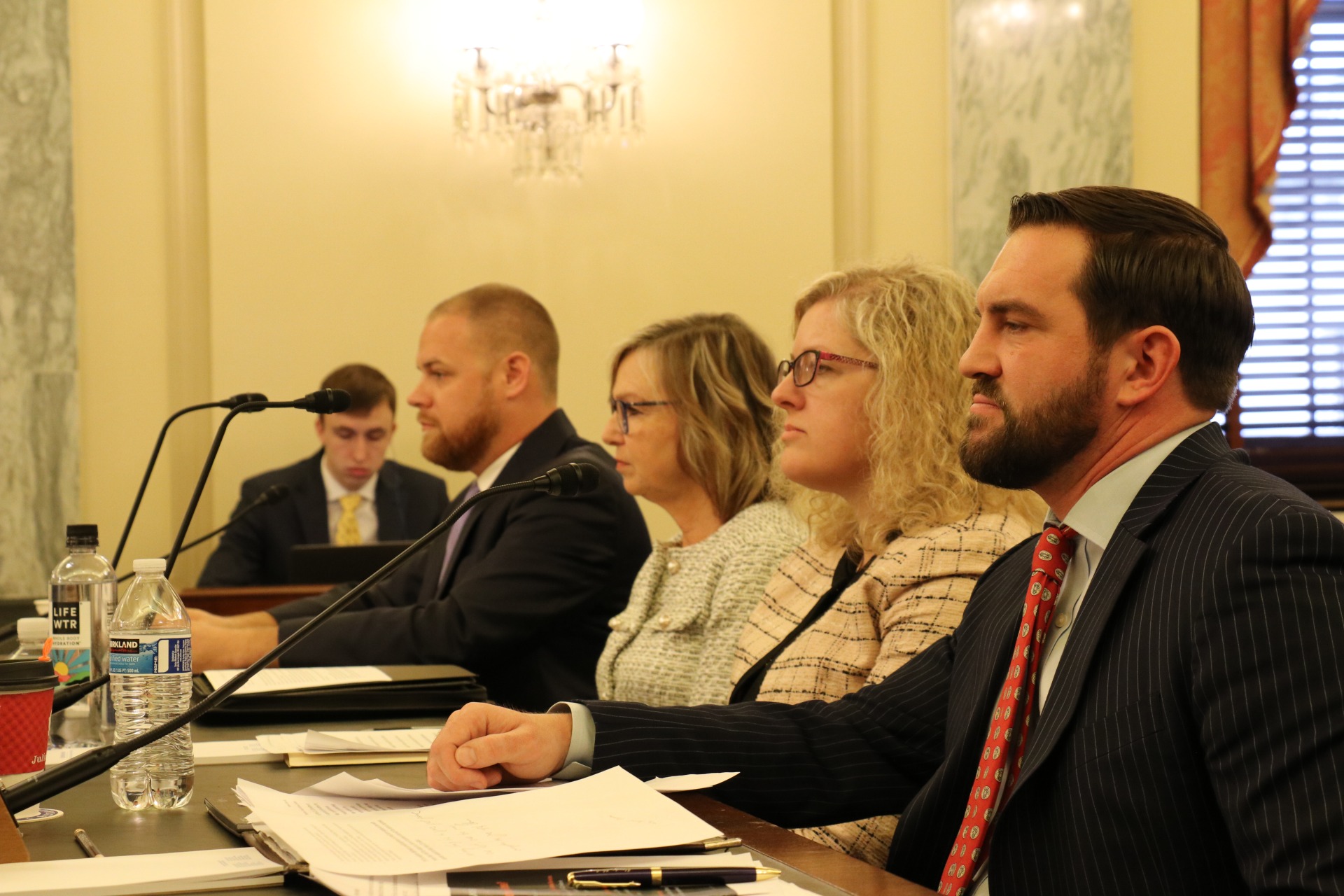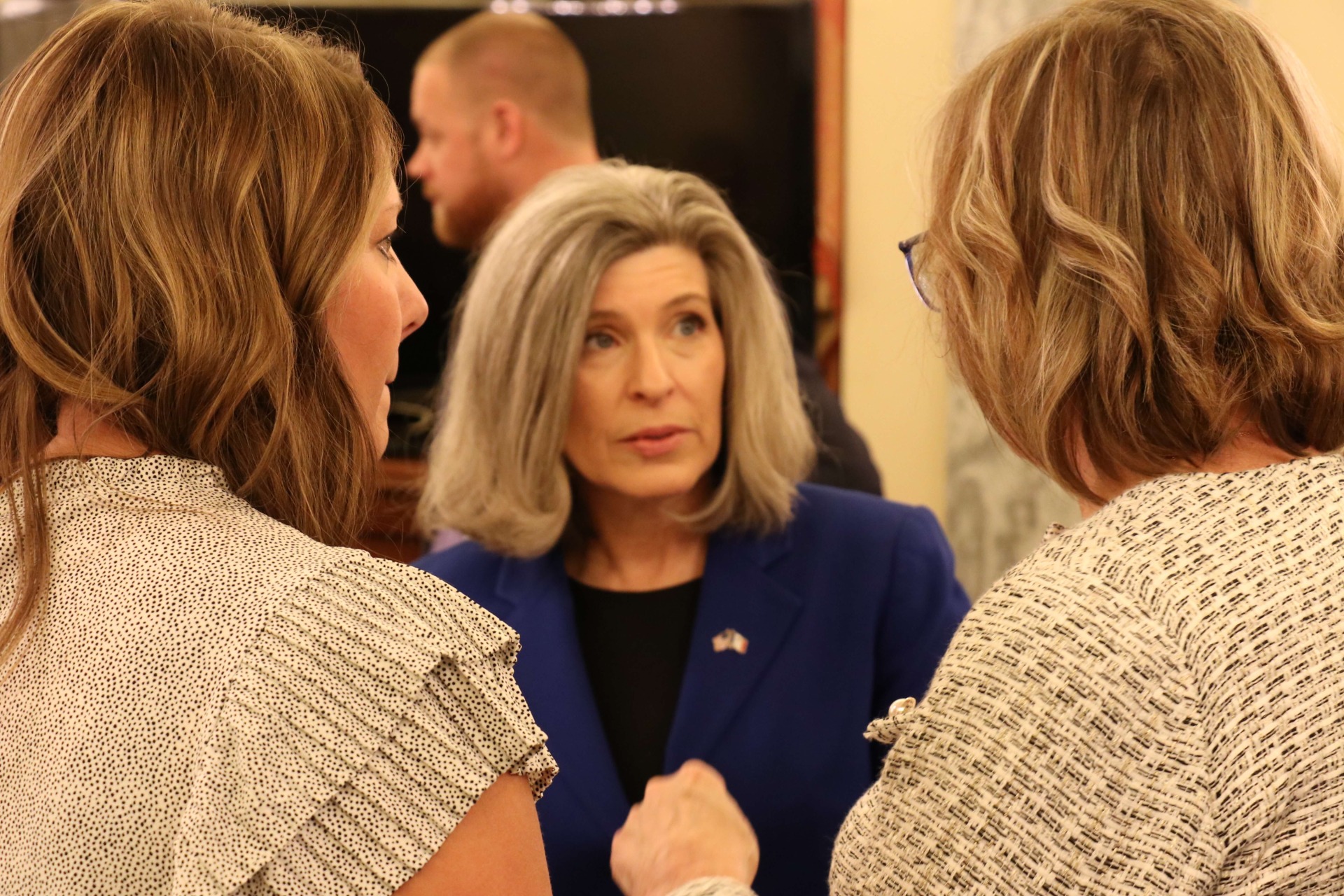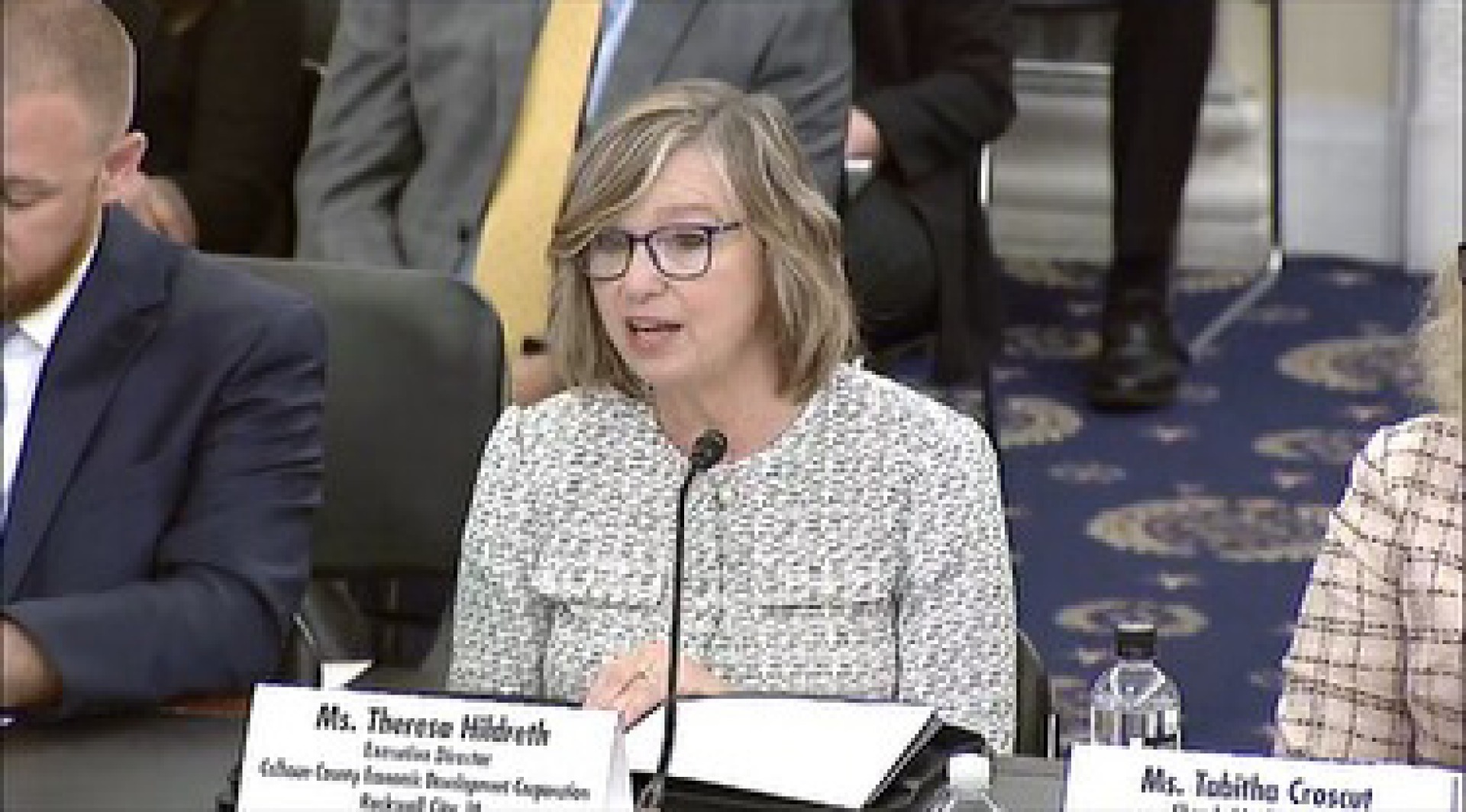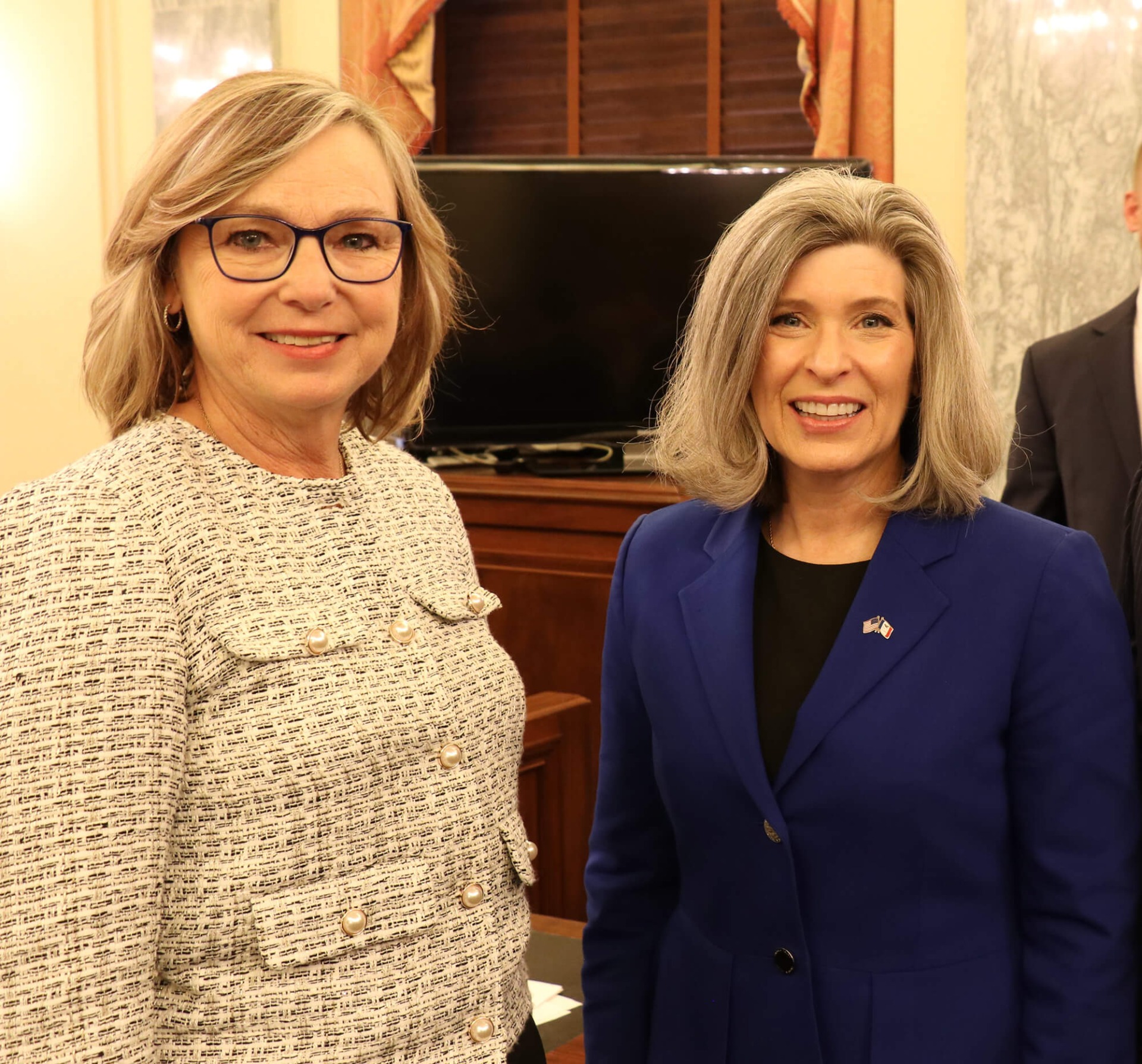
Making our voices heard: CCEDC Executive Director talks small business with U.S. Senators
Testifying before Congress can be nerve-wracking, but Calhoun County Economic Development Corporation (CCEDC) Executive Director Theresa Hildreth appreciated the opportunity to discuss the challenges and opportunities of rural business succession planning with U.S. senators in Washington, D.C. in late January.Testifying before Congress can be nerve-wracking, but Calhoun County Economic Development Corporation (CCEDC) Executive Director Theresa Hildreth appreciated the opportunity to discuss the challenges and opportunities of rural business succession planning with U.S. senators in Washington, D.C. in late January.
“My assessment on succession planning in rural Iowa is multifaceted, shaped by my personal, professional and policy perspectives,” said Hildreth, who noted that Iowa Sen. Joni Ernst invited her to speak to members of the U.S. Senate Committee on Small Business and Entrepreneurship in Washington, D.C. on January 24. “I’m grateful the CCEDC board encouraged me to testify.”

Succession planning is crucial for many family-owned businesses in Calhoun County, including Martin Hildreth Company of Rockwell City. Three generations of the Hildreth family have guided this 70-year-old underground utility contracting business. “We extended our succession plan from three years to five years, due to the current economic uncertainties that are also facing other rural, small businesses,” said Hildreth, who had five minutes to share her prepared remarks with the senators. “Rising interest rates, supply and material costs, taxes, insurance, workforce, ever-fluctuating fuel costs and wages significantly impact our transition timeline.”
She pointed out that these challenges affect a wide range of small businesses. The National Federation of Independent Businesses reported that 82% of small businesses are concerned about inflation impacting their operations.
Hildreth also highlighted other challenges affecting small businesses in Calhoun County. “One example of the human cost of economic decline in Rockwell City is the loss of a second-generation plumber. The 52-year-old plumbing professional suddenly passed away this past December. Now, his father has abandoned retirement to resume leadership of the only plumbing business in the community.”
Succession planning is essential for the economic well-being of the entire community, Hildreth added. “Balancing local businesses’ continuity with the need for innovation and growth is a key aspect of our endeavors at CCEDC.”
Speaking up for small businesses
 Capital gains tax is another pressing issue affecting many rural, family-owned businesses, including farms. “I kept bringing this key issue back to agriculture, because that’s such a key part of the economy in Calhoun County and Iowa,” Hildreth said.
Capital gains tax is another pressing issue affecting many rural, family-owned businesses, including farms. “I kept bringing this key issue back to agriculture, because that’s such a key part of the economy in Calhoun County and Iowa,” Hildreth said.
She informed the senators about Iowa’s proactive efforts to address inheritance taxation. “Making Iowa one of the leading states for people to retire requires elected officials and other leaders to consider the financial implications in succession planning and a dedication to preserving family-owned assets,” said Hildreth, who is serving her tenth year as a Senate legislative clerk in the Iowa statehouse.
During the January 24 hearing, senators also heard from an attorney from New Hampshire who specializes in ESOP’s, a business advisor from Ohio who specializes in succession planning, and the chairman of the Family Business Coalition. “We came from very different backgrounds, but many of our ideas aligned,” Hildreth said. “We all agreed we need more education to encourage strong succession planning. The senators were genuinely interested in what we had to say and asked us questions to learn more.”
The small-business representatives agreed that creating a favorable climate for rural economic development, including succession planning, involves policy advocacy and partnerships.
Hildreth cited a 2024 bipartisan report by the National Governors Association, emphasizing the need for private-public partnerships to foster rural economic development. “Addressing succession planning challenges requires understanding of the complexities that individual businesses face, as well as the interconnectedness of the rural economy with national issues,” she noted.
It’s not always what you know, but who you know, she added. “Through ongoing conversations, collaborative efforts and supportive policies, we can build a more resilient, sustainable future for rural communities and enhance business succession planning for generations to come.”

More Blogs
- Established and New Ag Companies Help Calhoun County Grow
- Jolley Good: Biscuits & Gravy Breakfast Serves Up Community Pride
- Young Couple’s Hometown Hardware Store Helps Manson Thrive
- 10 Free/Low-Cost Things to Do in Calhoun County
- Shining Bright: J&J Candles Offers Array of Popular Products
- Meet Theresa Hildreth, Calhoun County Economic Development’s New Executive Director

